
Islamic month of Ramadan fuels faith in distant places: how Muslims around Asia are breaking fast
- Kaleidoscopes of the religion emerge from snapshots of Ramadan in three destinations – Singapore, Seoul and the southern Philippines
Inspecting the communal plates one by one, Nurul Islam made sure they were clean before arranging slices of watermelon, oranges and honeydew neatly beside.
He then served up generous portions of jhal muri, a spicy Bangladeshi dish made of puffed rice, chickpeas and spices.
Nurul would go on to fill close to 100 plates with the help of 50 other believers preparing for iftar, the evening meal for Muslims during their month of fasting from dawn to sunset.
“Ramadan is a big and special month for Muslims, and every one of us looks forward to it,” said the 38-year-old Bangladeshi.
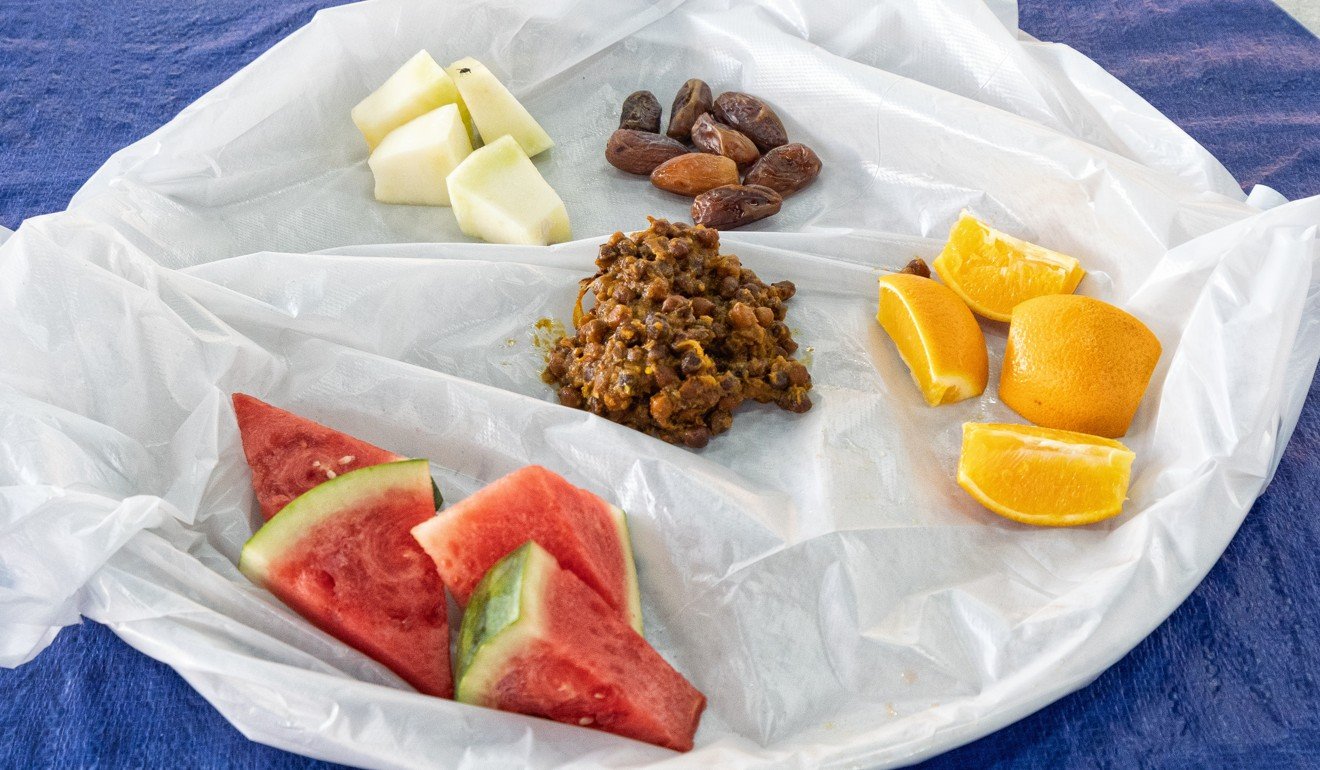
Nurul was among 1,400 Muslim migrant workers staying at The Leo, a dormitory in Singapore, where they were observing the holy month – the ninth in the Muslim calendar – away from their families on Monday.
Like Nurul, thousands of migrants flock to Singapore each year in search of better job opportunities. The Leo houses workers hailing from a number of countries, including Bangladesh, Myanmar, Thailand and India.
To help them feel closer to home, the dormitory has catered meals for its Muslim residents.
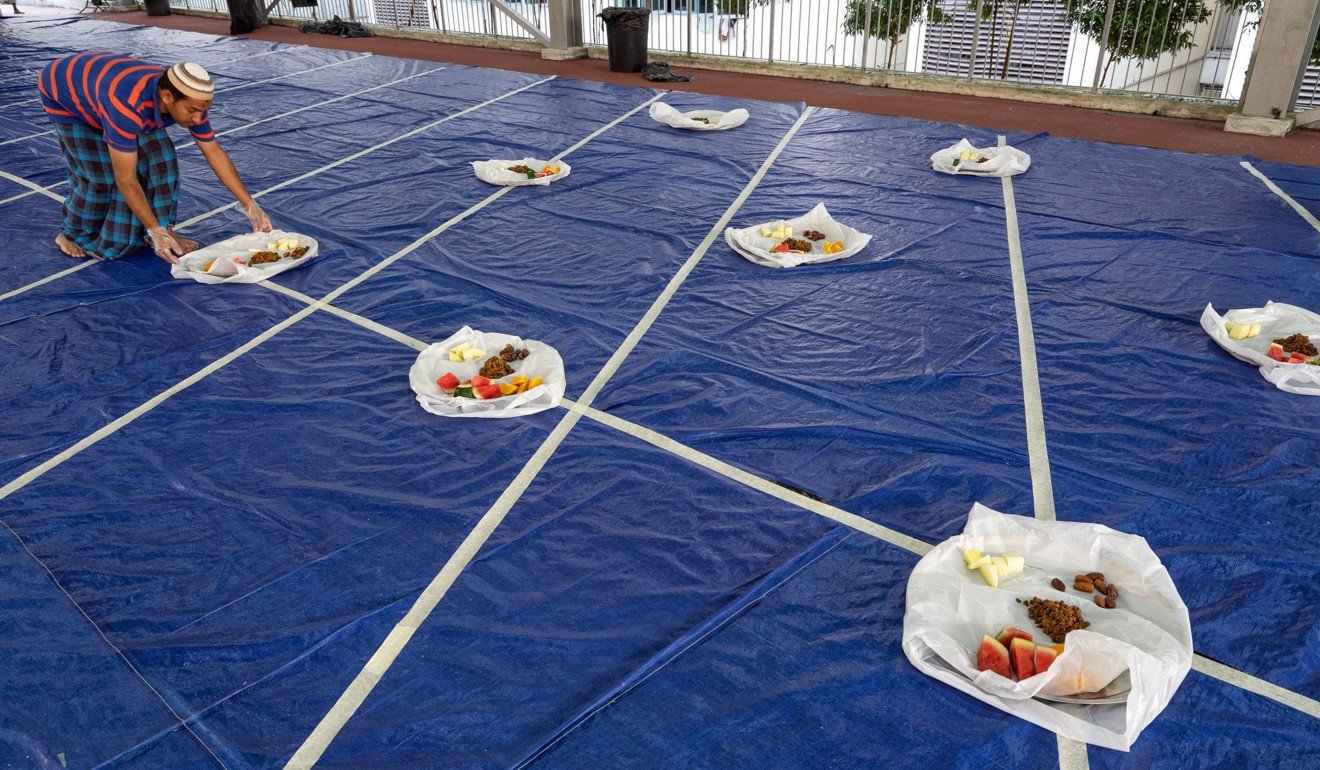
“Every day in the month of Ramadan, we are arranging food for the breaking of fast, and predawn meals for 450 residents on weekdays and up to 700 on weekends,” said Bava Sahib, an operations manager.
He added that other food offerings, including curry puffs, samosas and mee goreng, would be served in the coming weeks.
The dormitory’s recreation hall, where residents usually play badminton, had been transformed into a food and prayer hall, according to Sahib, so residents could pray and break their fast conveniently, instead of walking to the nearest mosque, which is 1.5km away.
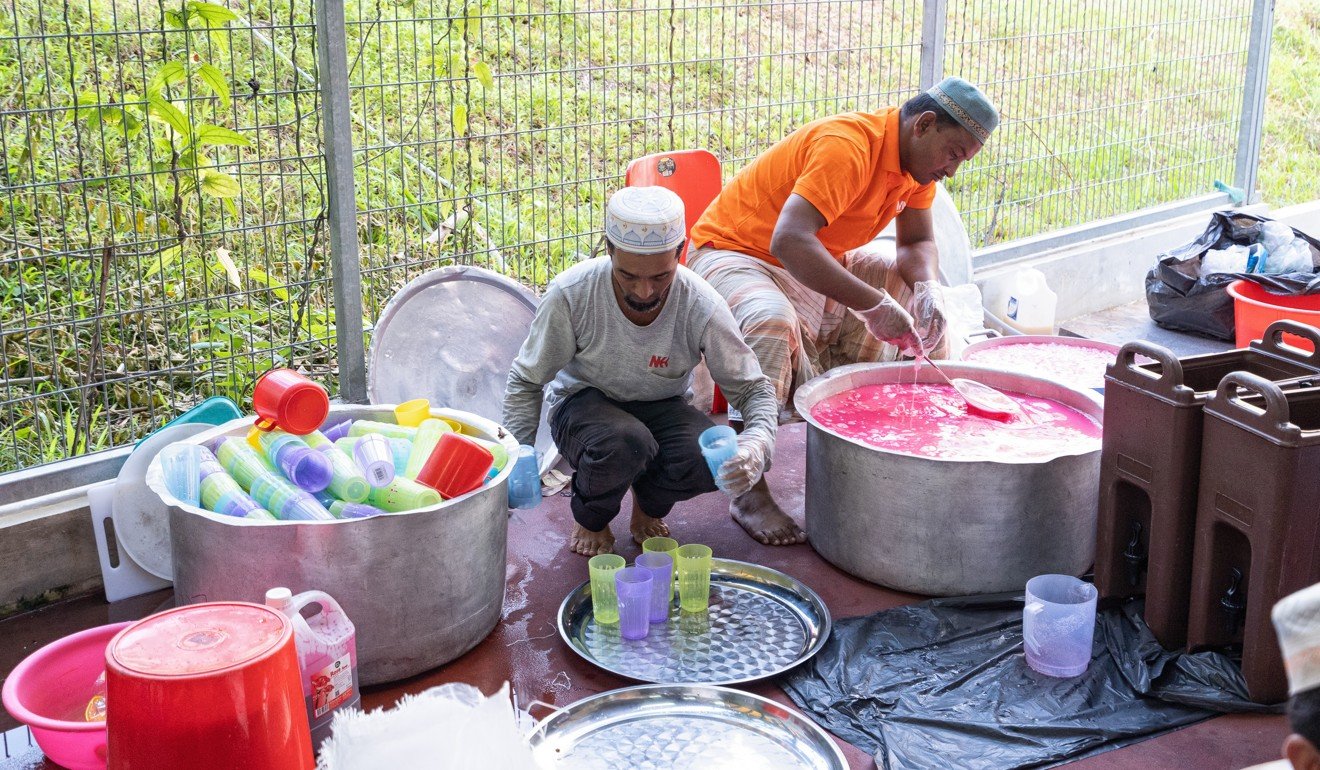
This year is Nurul’s third Ramadan away from home. He came to Singapore 14 years ago, and has only returned home twice to visit his wife and daughter.
“Back in our hometown, I would eat with my family every morning and evening, and of course, everybody would miss their families,” said Nurul, who works for contractor Tan Ah Lee Enterprise.
“But eating and praying together with all my Muslim buddies here makes this place my home, and we enjoy everything together.”
Another migrant worker, Ahmad Rana, said it felt “different” observing Ramadan away from his hometown in Bangladesh, which is two hours behind Singapore.
But video-calling his wife and three children multiple times a day filled the void, said the 35-year-old, who works for Sunway Concrete, a construction company.
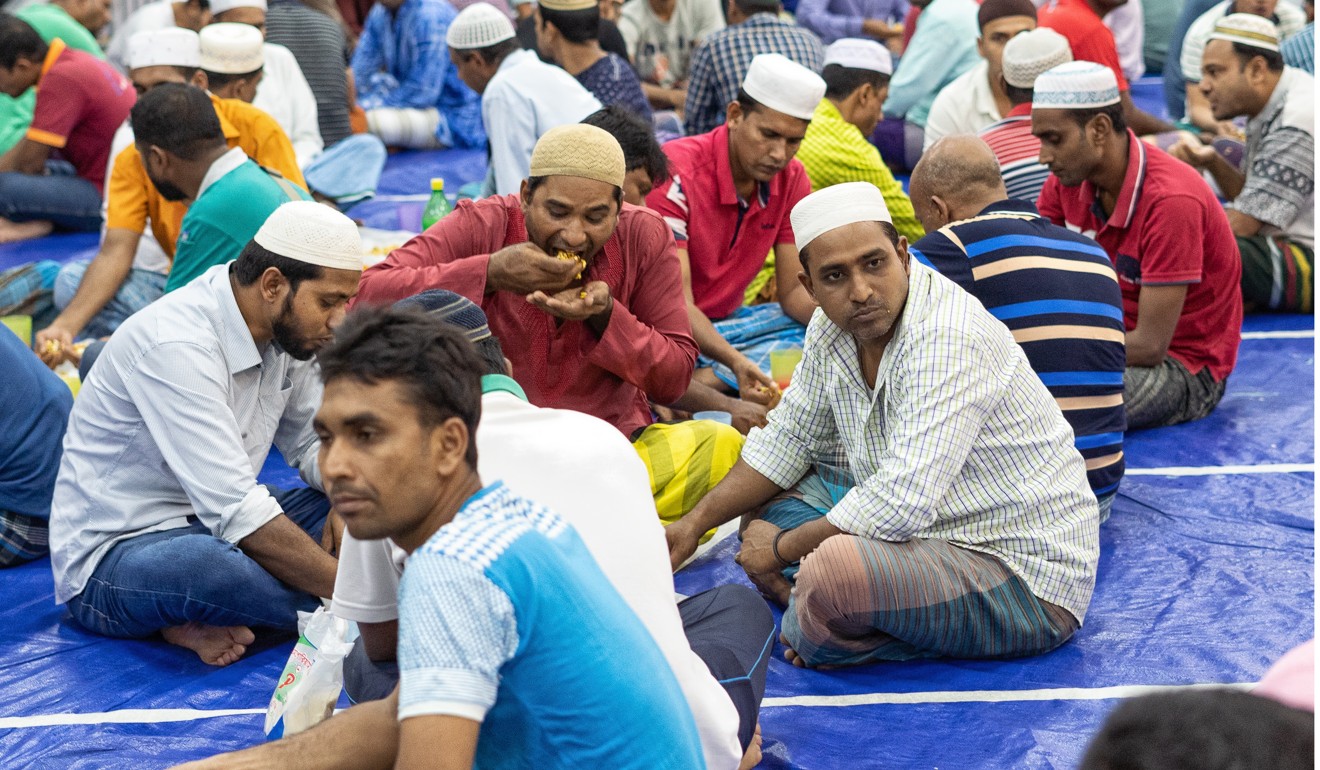
“I will call my family and show them what I am eating, and tell them what I did for the day,” said Ahmad, sharing eagerly that his wife had cooked up a hearty feast of chicken and fish curry the previous day.
As the sun set at around 7pm in the bustling city state, Ahmad and Nurul joined hundreds of workers in the recreation hall as they lifted their hands mid-air in prayer.
Mohammad Aktaruzzaman, 40, another Bangladeshi, said their common purpose made the group one big family.

“I am very happy that I am finally going back to see my wife and daughters,” he said of his plan to return to Bangladesh in July.
“But I am also thankful to have spent five Ramadans with my Muslim friends here.”
Meanwhile, deep in the southern Philippines, hours before the sun went down, Filipino Muslim Bing Guiaman asked her husband to go to the city to buy spaghetti and fried chicken, a family favourite their children had requested to end their 14-hour fast.
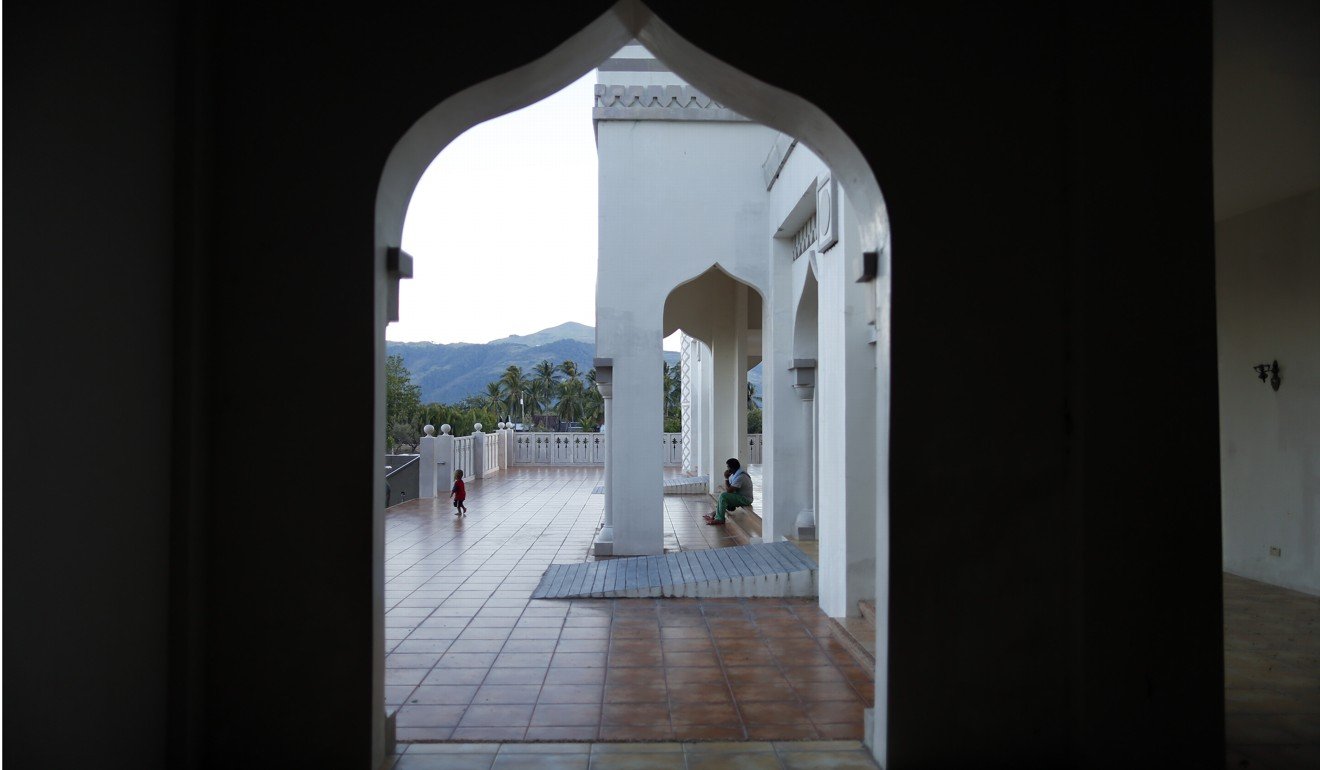
The 32-year-old Guiaman said she typically prepared rice cake, coffee, pineapple juice, fruit and fish soup for their meal on the second day of Ramadan. But her children’s request had changed those plans.
The couple have made a living for the past five years selling freshly caught seafood near the Grand Mosque, known as Sultan Haji Hassanal Bolkiah, a five-hectare complex built in 2008 by the Brunei government in the village of Inawan, just outside Cotabato.
Guiaman’s partner, 35-year-old Shariff, returned an hour later, carrying six boxes from a well-known fast-food chain.
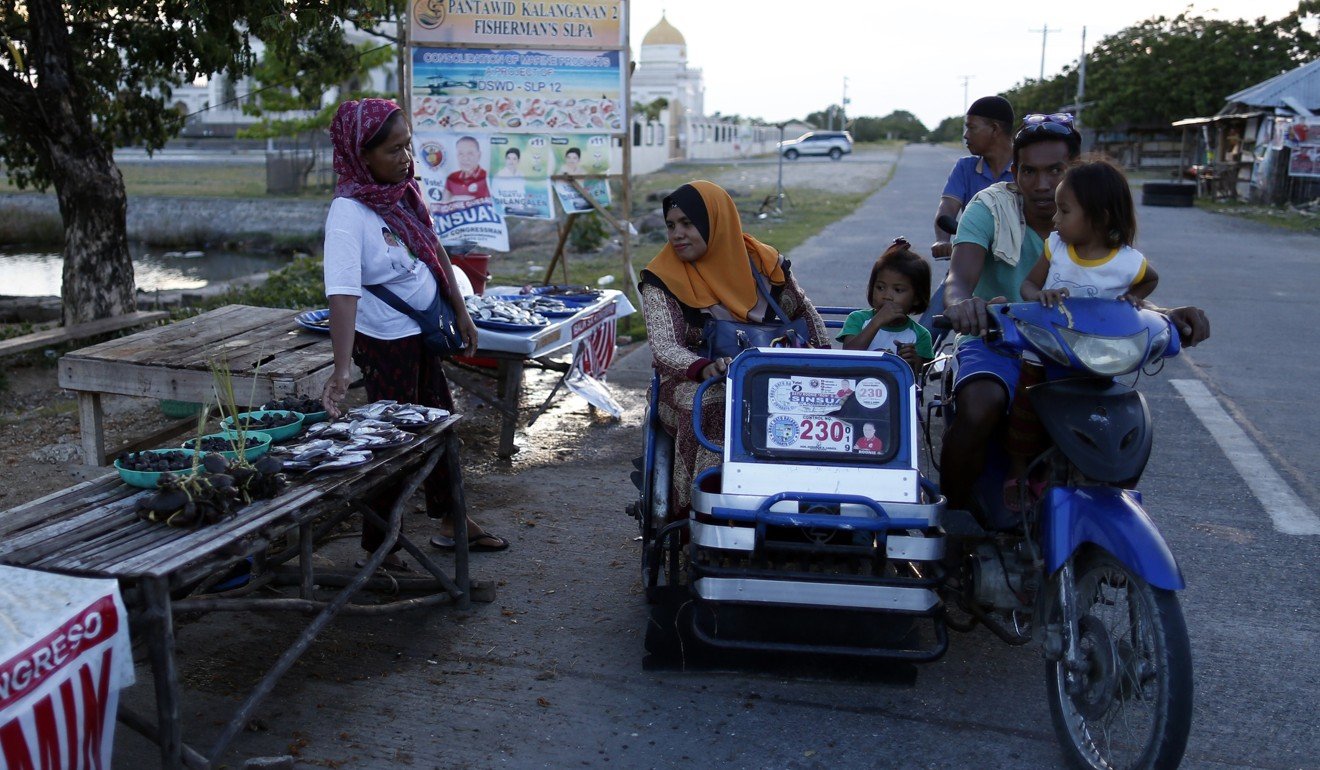
“It’s requested by our children … just for today,” the mother said outside their cramped wooden house.
“This Ramadan we pray to Allah to strengthen our family and guide us, especially our children, in their education.”
More than 13 million Filipino Muslims, mostly concentrated on the island of Mindanao, have also begun the month of Ramadan. Their fast is one of the five pillars of Islam. Muslims refrain from food and drink in daylight hours and aim for restraint in thought, words and deeds.
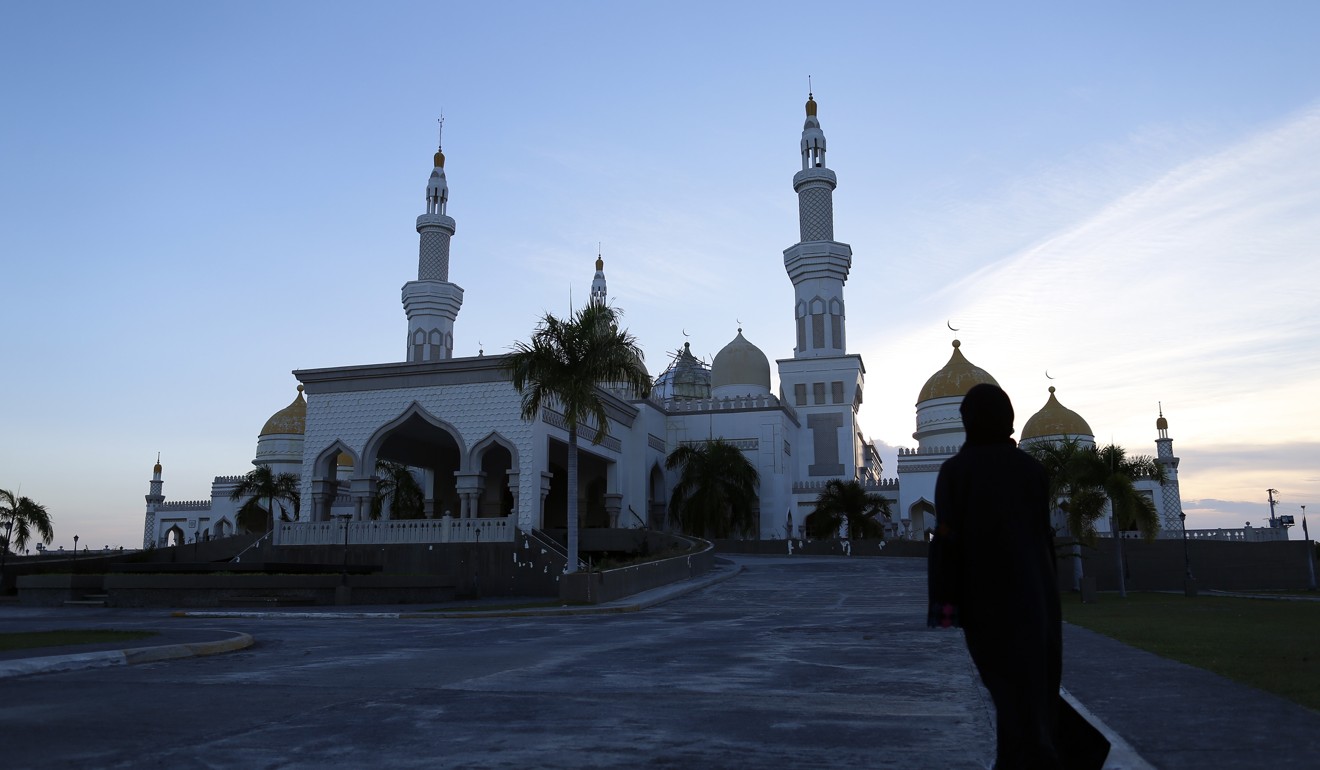
Gubaida Datumanong Dimasangkay, who lives nearby the Guiamans, was preparing spaghetti, rice, coffee and fried fish to break fast with her grandchildren.
“This is the best food we have for iftar,” Dimasangkay, aged in her 50s, said. “For tomorrow, I’m still thinking of something different.”
Local official Anwar Emblawa said most Muslims broke fast in the same way as the Prophet Mohammed, with only water and dates before then eating a meal.
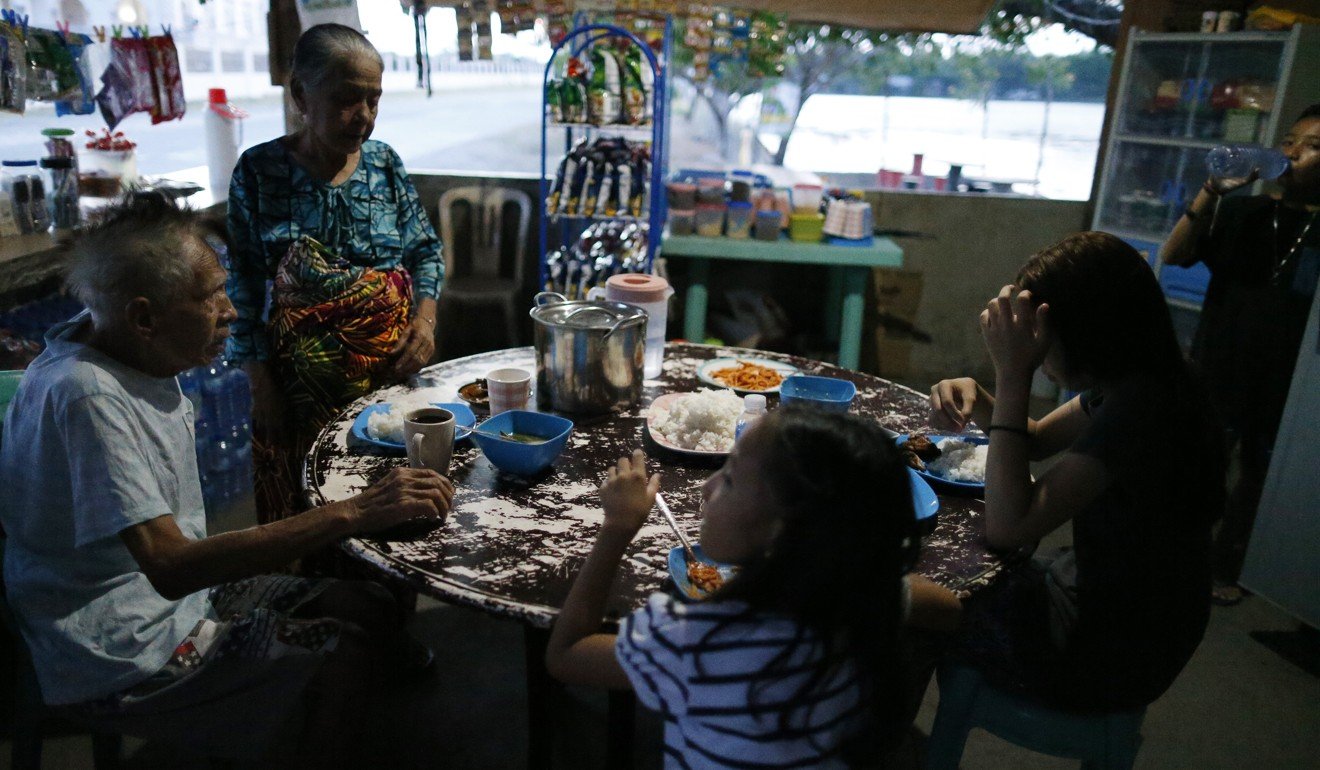
The other meal of the day during Ramadan is suhoor, before dawn, when believers wake before 3am to prepare protein-rich foods to see them through the day.
“The essential food habit here is sindol, a banana with coconut. That’s the practice,” Emblawa said.
In Cotabato, a majority voted in 2014 to include the city in a Muslim region covered by Bangsamoro Organic Law – legislation specifically drawn up for the area. The law was the final step in a 2014 peace agreement between Manila and the 12,000-strong Moro Islamic Liberation Front. The deal was designed to end their decades-old dispute over self-determination which has left tens of thousands dead since the 1970s in fighting between state forces and Muslim guerillas.
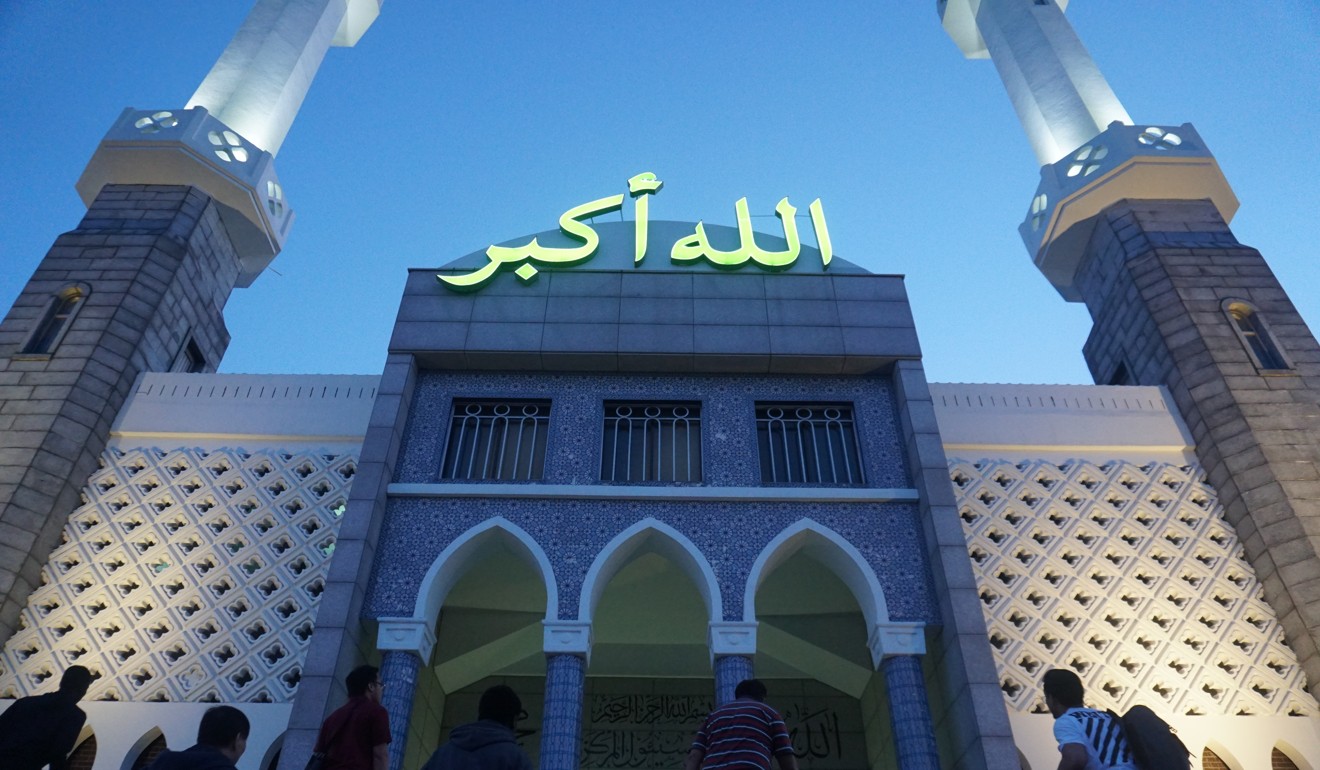
In Korea this week, a sea of blue plastic tables has filled the empty lot outside Seoul’s largest mosque each evening for the city’s growing number of Arabic, African, and Asian followers of Islam. Accompanying them have been plates of caramel-coloured dates and bottled water – two ingredients key to breaking fast. But they were complemented by a uniquely Korean touch – perfectly sliced cubes of watermelon, a fruit prized in Korean culture since the Joseon dynasty, which ended at the turn of the 20th century.
At Seoul Central Mosque, they have been serving up nearly 100kg of rice every night this month. After each day’s Maghrib prayer, young men haul massive metal drums of rice and lamb curry out of a hidden kitchen for an almost endless line of hungry men. In a separate room reserved for women, a much quieter feast goes on.
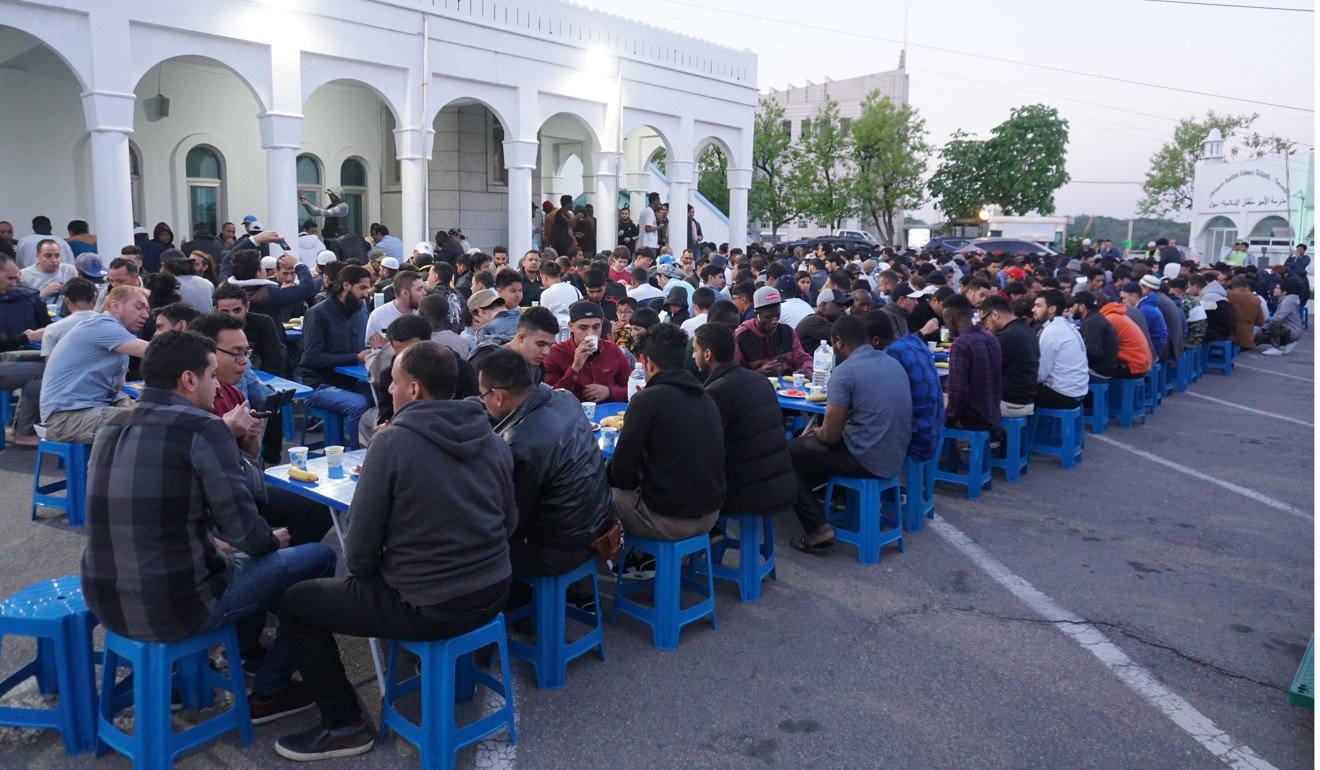
Perched at the peak of “Halal Hill” in Itaewon district, the mosque, with its towering twin minarets, is the heart of Islam in South Korea. The complex and its surrounding haven of halal restaurants offer an escape from the barbecue and soju bars that dominate so many Seoul streets.
Korean cuisine was not forged with halal in mind. Grilled pork is the preferred meat for many work meetings and social outings, and Muslims can have a hard time bonding with Korean colleagues over food.
But Muslims in Seoul have been finding plenty of halal-friendly ways to break their fast while still enjoying Korean dishes.

“I’m okay with bulgogi,” said Muhammed Farras, a 23-year-old Indonesian, adding that Korea’s chicken dishes, such as samgyetang, were also welcome. He said the Muslim community in Seoul was diversified and growing, with almost 20,000 Indonesians.
But South Korea is still a highly homogenous society with an often lukewarm reception for Islam. Many Muslims complain that society is unaccommodating of their religion. Despite this, a growing number of Koreans are warming to the Muslim presence.
“I’m here for my girlfriend. She’s from Morocco,” said Kim Hyunwoo, a Seoul native.
Clutching a red takeout box amid the crowd rushing inside the mosque to pray, Kim watched with curiosity as he waited for his girlfriend outside. Though not a Muslim, he joins his partner there for iftar in hope of learning more about her culture.
“She likes kebabs,” he said, smiling, before the couple walked off to take a selfie in the car park with Seoul’s largest mosque in the background.


